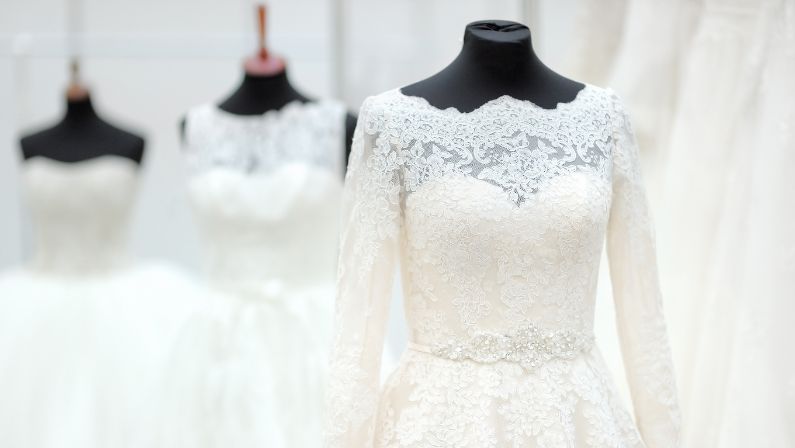Ironing is an important part of keeping clothes looking neat and wrinkle-free. The iron itself, though, can harm delicate textiles and leave scorch scars on clothing if you’re not careful.
A press cloth can be useful in this situation. And in this article, we’ll guide you on how to use it and more.
What does a pressing cloth do?
In order to preserve sensitive materials, avoid shine, and facilitate ironing, a pressing cloth is a little piece of cloth that is used during the ironing process. It functions by forming a shield between the fabric and the hot iron, minimizing the possibility of harm from direct contact.
The pressing cloth aids in avoiding the scorching and burning of delicate textiles like silk or nylon. Additionally, it helps avoid shiny synthetic textiles, which can happen when the iron makes direct contact with the fabric.
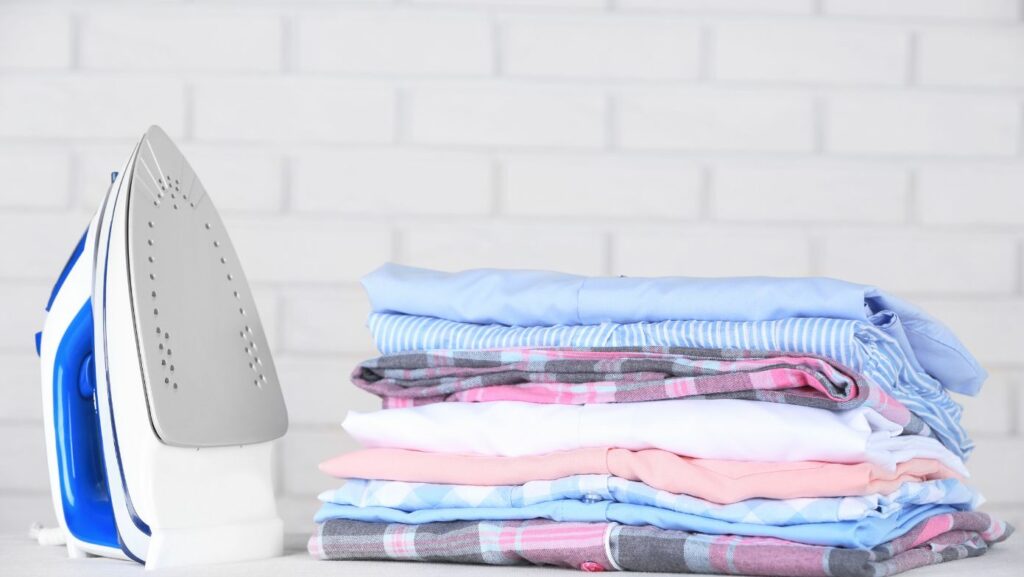
Benefits of using a pressing cloth
A pressing cloth is a useful tool to have in your arsenal. Here are just some reasons why:
Protecting delicate fabrics
Delicate fabrics like silk, nylon, and rayon can easily be damaged by direct contact with a hot iron. A pressing cloth acts as a barrier between the iron and the fabric, reducing the risk of scorching or melting.
Preventing shine and scorching
Absorbing moisture
When ironing, it’s important to avoid steam from reaching the fabric, as this can cause the fibers to stretch and result in permanent wrinkles. A damp pressing cloth helps to absorb the steam, preventing the fabric from becoming damp.
Aiding in crease removal
The pressing cloth absorbs the heat from the iron and helps to spread it evenly over the fabric. This helps to remove creases more effectively, as the heat is distributed uniformly instead of concentrated in one spot.
Improving the appearance of clothes
Types of press cloths
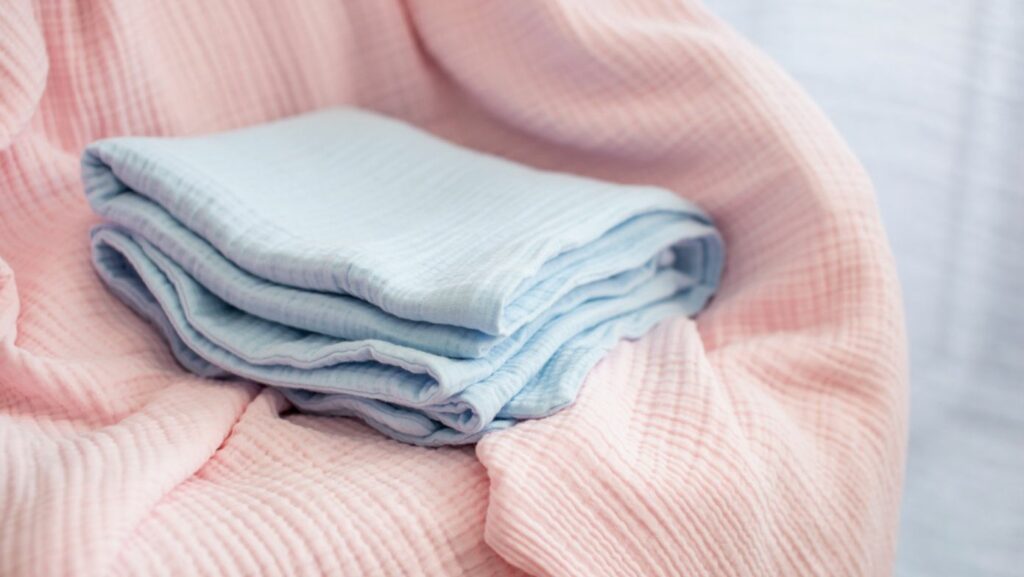
Muslin press cloths
The lightweight, porous material used to make muslin press cloths is great for eliminating creases. Because they won’t leave any stains on the cloth, they are also suitable for usage with delicate materials. Additionally, machine-washable muslin press cloths are simple to maintain and reuse.
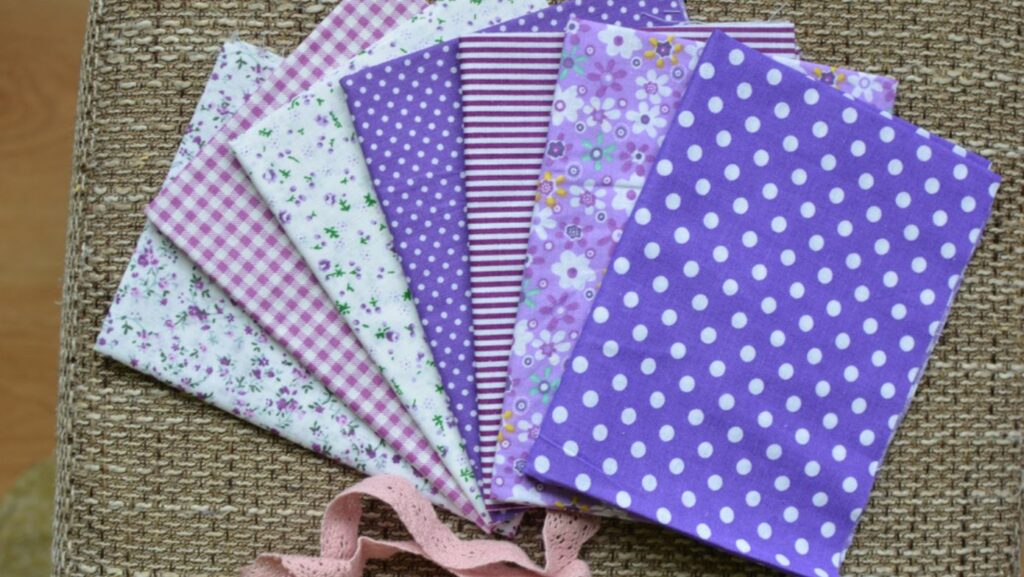
Wool press cloth
The ideal equipment to use when tailoring wool clothing is a wool press cloth. In particular, combed wool is spun into woven wool utilizing a high twist. The fibers become flat and sturdy as a result.
Wool is a fantastic material for distributing steam because it can store a lot of water, even when it feels dry to the touch. Using a wool press cloth prevents the fabric from shining.
Cotton canvas press cloth
Because of its weight and good heat tolerance, the thick cotton fabric is a fantastic barrier for delicate fabrics.
Due to the density of canvas cloth, heat is uniformly distributed throughout the fibers. The iron soleplate’s direct heat is dissipated as it enters the cloth. For leather and materials with a low melting point, like nylon, coated textiles, or other synthetics, canvas press cloths are a good option.
Cotton shirting press cloth
When setting the fabric with heavy steam, this style of press cloth works well. The cotton can be misted or moistened to add moisture to pressing since it absorbs the iron’s blast of steam. The flat weave, fine yarn, and high heat tolerance of this fabric prevent changes in the texture of the fashion cloth.
This long-staple fiber, the plain-weave fabric, is an example of Swiss or Italian cotton shirting. In comparison to other cotton fabrics, the textile made from long-staple cotton is smoother, finer, and stronger.
Cotton flannel press cloth
With wool flannel, camel hair, bouclé, or pinwale corduroy, use a cotton flannel press cloth. Apply mild pressure to the iron or hover and steam over the flannel as you press the seams with your fingers.
When pressed, brushed, or hairy, materials might become flat or shiny. These materials are shielded by cotton flannel press cloths.
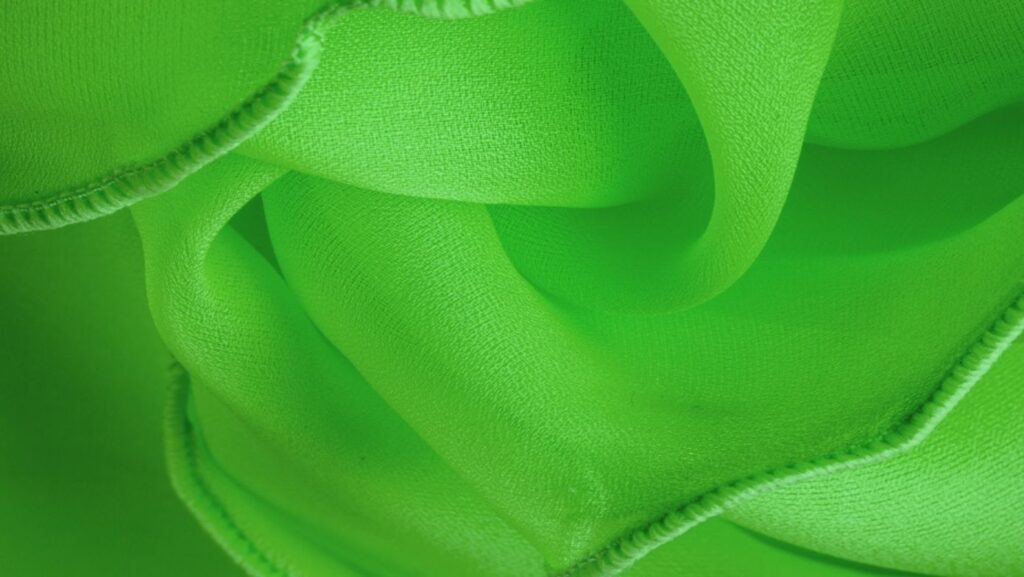
Silk organza press cloth
Silk organza press cloth has a high melting point and can be utilized at any iron temperature; use it for general pressing. Since the cloth is sheer and made of fine silk filament yarn, you can see through it to position the iron precisely where you need it.
The delicate texture of organza prevents the transmission of weave texture to fashion fabrics.
How to use a pressing cloth
Using a pressing cloth is a very easy process. Here’s how you can do it:
- Simply place it over the area that you are ironing.
- Then use the iron as you normally would.
- The press cloth will absorb the heat from the iron and help to spread it evenly over the fabric, reducing the risk of damage.

What is the best fabric for pressing cloth?
The best fabric for a pressing cloth is one that is lightweight, porous, and able to withstand high temperatures.
Because it is lightweight, absorbent, and resistant to high heat, cotton is a common material choice for pressing clothes. Cotton is a nice material to use with silk or nylon since it is soft on delicate materials.
Cotton, linen, muslin, and microfiber are all good options, and the best choice for you will depend on your specific needs and the types of fabrics you will be ironing.
Do I need to wash the pressing cloth?
The Secret to Perfectly Pressed Clothes
A press cloth is an essential piece of equipment for maintaining the best possible appearance of your clothing, regardless of your level of ironing experience.
If this is additional work for you, another secret to having perfectly pressed clothes is letting Green Oaks Cleaners just do their magic. They make sure to use it on your clothes when necessary, and just give the best-pressed clothes for all customers.




